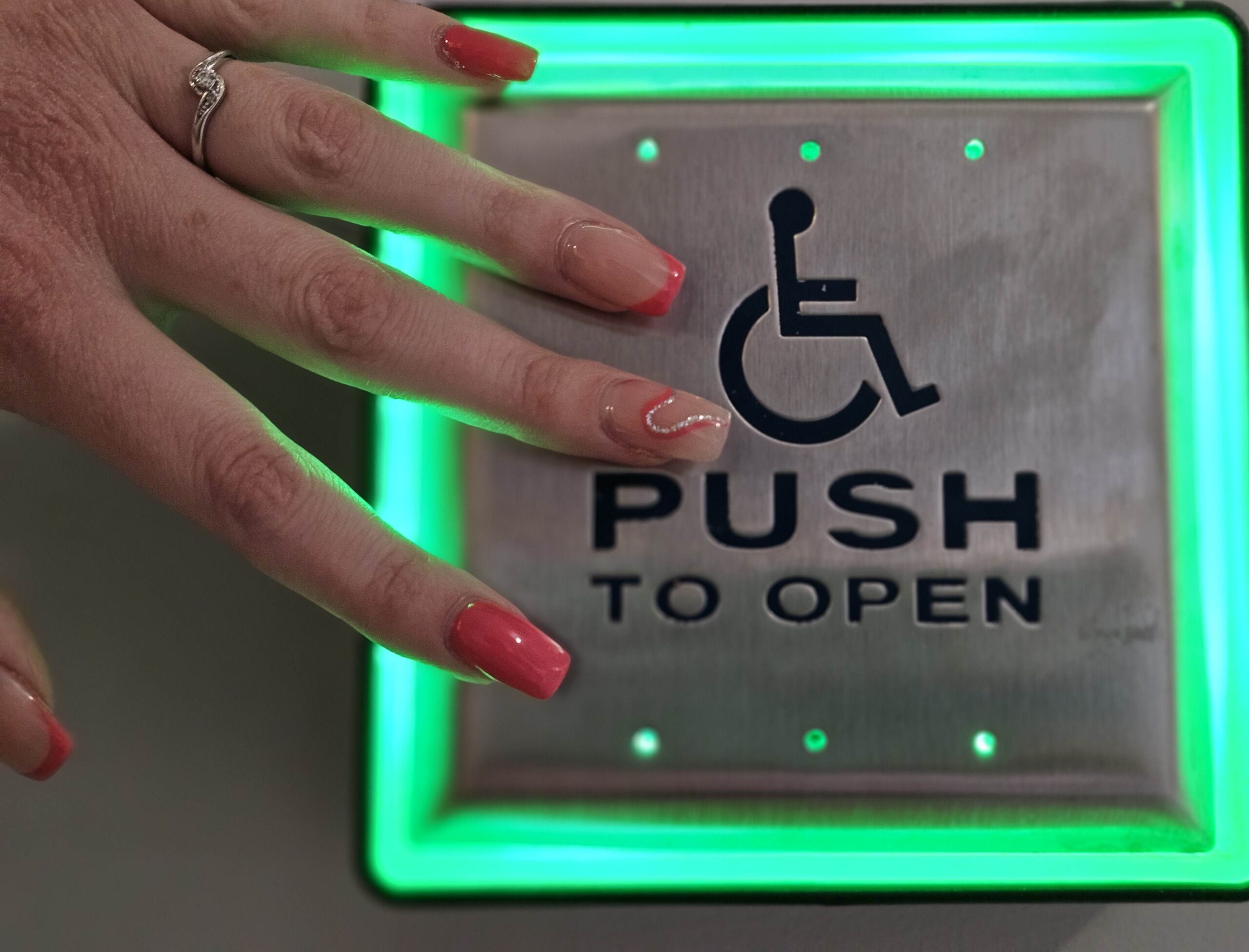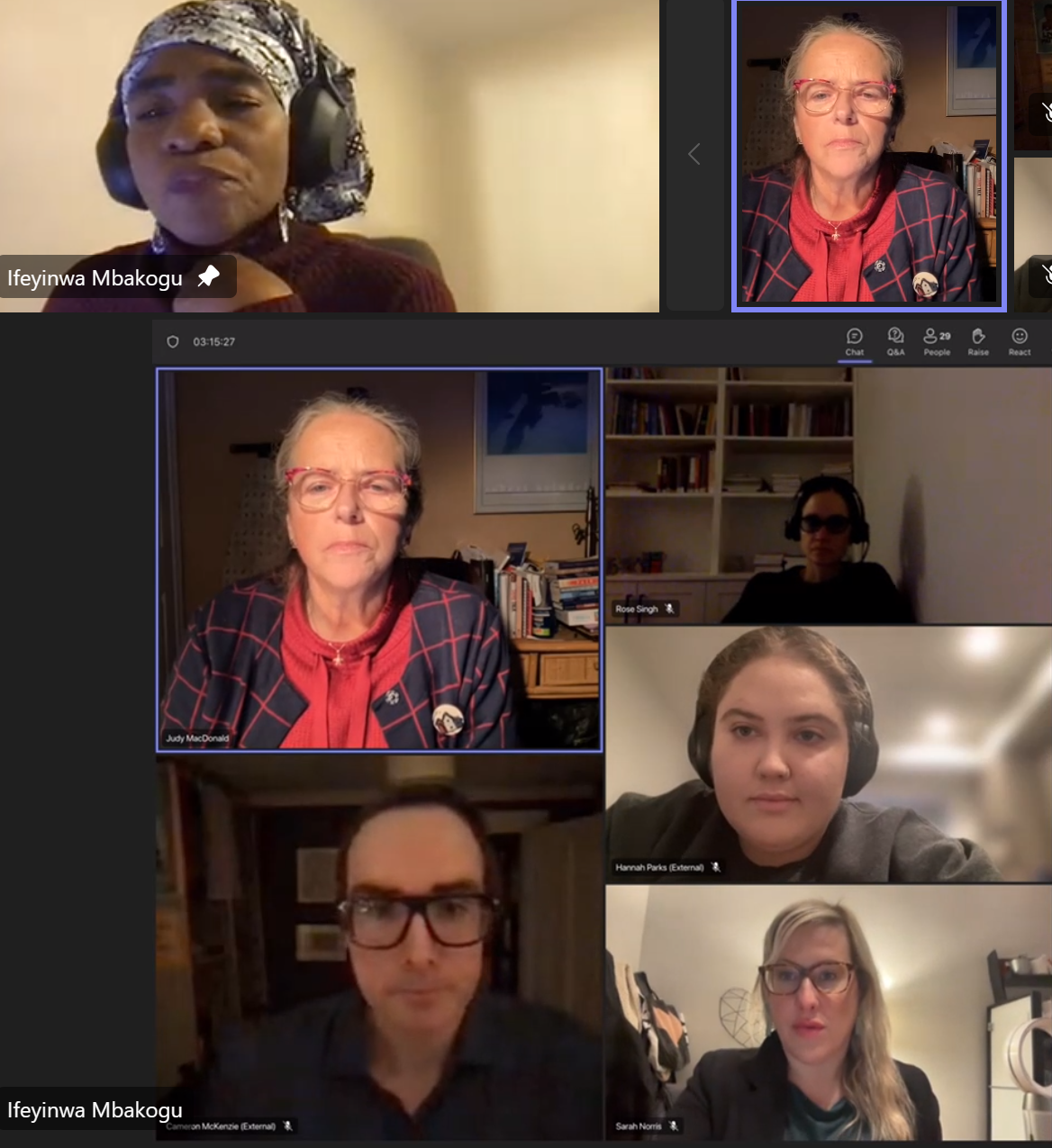Dalhousie panel denounces ableism in post-secondary education
Accessibility Week panellists discuss discrimination against disabled persons

caption
Dalhousie hosted an interactive panel centred around debunking ableism on Nov. 30A panel of faculty members and social workers told an audience at a Dalhousie University panel on Thursday that ableism is still a powerful presence in academia.
“The silent bystander is the most hurtful occurrence within the academy,” said Ifeyinwa Mbakogu, chair of the diversity and equity committee at Dalhousie University.
During the panel, Mbakogu said racialized disabled people are dehumanized through oppressive language and violations of accommodations, supports and needs in the academic environment.
“I should typically be walking with a cane,” said Mbakogu. “But I don’t, because I may be perceived different from others.” Mbakogu shared her experience in hiding her chronic pain to avoid offending questions.
About 30 participants attended the interactive panel discussion on Debunking Ableism. The event was organized by the Diversity and Equity Committee of the School of Social Work at Dalhousie University.
Ableism is defined as discrimination and systematic bias against individuals with disabilities.
Dec. 3 marks the International Day for Persons with Disabilities. In the lead-up to this day, Dalhousie University created the Dalhousie Accessibility Week campaign in 2022, to raise awareness and provide learning opportunities around accessibility planning at Dalhousie.
The campaign runs between Nov. 27 and Dec. 3 and the panel was part of the campaign.
The event’s five panellists shared their experience of disability and advocated for countering discrimination against disabilities in post-secondary education and social work.

caption
Debunking Ableism panellists discussed their experiences with disabilities on Nov. 30.Rose Singh is a social worker and sessional lecturer at Dalhousie who identifies as a disabled person. During the panel, Singh said ableism can be countered through learning about and applying the principles of disability justice.
Disability justice prioritizes the inclusion of historically excluded groups. Singh said the approach focuses on understanding the uniqueness of all bodies and their needs and strengths.
“There is an absence of disability, as it emerges in social work curriculum and there is minimal research that addresses anti-ableism,” says Singh.
A Statistics Canada study stated that in 2022, around 20 per cent of youth and working-age adults in Canada had a disability.
The most common disability was pain-related, with 62 per cent of disabled persons reporting this type of disability.

caption
In 2022, around 20 per cent of youth and working-age adults had a disability.Panellist Hannah Parks is a student support advisor at the University of Calgary and a Dalhousie alumni recently diagnosed with autism.
During the panel, Parks advocated for an easier way to learn about different aspects of disabilities in post-secondary education.
“When I think about what that means, I think about also how we might empower students to lead on their own and be supported in their journeys,” said Parks.
Cameron McKenzie, a professor of social work at Wilfrid Laurier University in Waterloo, Ont., with a learning disability, said there’s an urgent need to improve the social inclusion of disabled educators as dehumanization and stigma is still present around disabled faculty members.
“As a disabled and queer faculty member at a Canadian university, we contended that universities may hire instructors that are disabled … yet failed to prioritize the need to enhance our social inclusion.”
McKenzie said institutions need to recognize their failures toward disabled people in order for change to happen.
About the author
Victoria Brzezinski-Szadzianis
Victoria is a Franco-Polish student. She moved to Halifax to study journalism at King's. She's in her fourth year of the BJH program.
